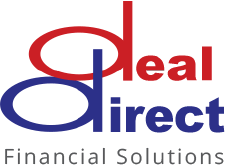Customer Overview
Our clients, a married couple in their early 50s based in the UK, are working professionals with a long-term mortgage in place and prior borrowing linked to home improvements. Despite never missing a payment, they recognised the need for a long-term financial shift — transitioning from multiple high-interest credit and secured loans to a more manageable and secure repayment mortgage structure to achieve debt consolidation remortgage.
The Challenge: High-Interest Debt and an Interest-Only Mortgage
The couple’s financial structure included:
- Interest-only mortgage with Together – no capital being paid off
- A secured loan with Step One Finance at a high monthly payment
- Multiple high-interest credit cards and unsecured loans
In total, they held debts amounting to £81,684 across five sources, including Lloyds Bank, Barclays, Halifax, Admiral, and Step One. The interest rates on their credit cards ranged from 32% to 34%, with projected repayment amounts nearly doubling the balances over time.
Although the couple was not in financial distress, rising interest rates and the interest-only nature of their mortgage meant they were treading water without reducing their overall debt. Their goal was to transition to a capital-repayment mortgage, consolidate high-rate borrowing, and ultimately work toward being debt-free through a debt consolidation remortgage.
The Solution: Remortgage to Consolidate Debt
After a thorough income and expenditure review, the best course of action was a debt consolidation remortgage. This allowed them to:
- Switch their first-charge mortgage to a capital repayment model
- Consolidate £81,684 of debt into their mortgage
- Simplify monthly payments and increase net disposable income
We advised them that consolidating unsecured debt into a secured mortgage would increase the total repayment over time due to the interest accruing over a longer term. Still, it would bring immediate income relief and long-term debt reduction. They would pay approximately £1.76 for every £1 borrowed, with the mortgage term giving them peace of mind and a clear path to mortgage freedom.
Why This Strategy Made Sense
- Available equity in the home allowed the consolidation without exceeding a comfortable loan-to-value (LTV) ratio
- No upcoming large expenses or need for additional borrowing
- The secured loan was nearing the end of its fixed rate and would otherwise jump significantly in cost
- A repayment mortgage ensured that the loan (and formerly unsecured debts) would be fully paid off by the end of the term with a debt consolidation remortgage approach.
Results: Lower Monthly Payments and Clearer Financial Horizon
By consolidating, the couple:
- Achieved an estimated total savings of £29,604.16 over the original debt repayment plans*
- Boosted their monthly disposable income by approximately £129.92
- Shifted from high-cost, interest-only strategies to a fixed plan that reduces debt over time
*Savings are based on keeping the mortgage for the full term and assuming average interest rates do not rise significantly.
Client Testimonial:
“We weren’t in financial trouble, but the debt felt scattered and the credit interest was overwhelming. Consolidating through the mortgage has allowed us to focus on one payment, build equity, and start reducing debt properly. It’s a relief to finally feel in control, thanks to debt consolidation with a remortgage.”
Frequently Asked Questions (FAQs)
How much can I save monthly by consolidating credit card debts into a mortgage?
It depends on your balances and current interest rates. In this case, the clients increased disposable income by roughly £129.92 per month after consolidating credit cards and loans into their mortgage.
Can you remortgage to fund home improvements?
Yes. A remortgage can release equity to fund improvements. However, it’s important to assess whether adding additional debt offers long-term value before proceeding.
Does remortgaging affect my credit score?
A remortgage results in a credit check, which can cause a temporary dip. However, removing multiple high-interest accounts and having a consistent payment history may improve your score in the long run.
What documents are required for a remortgage application?
You’ll typically need:
- Proof of income (payslips or tax returns)
- Bank statements
- Details of existing mortgage and debts
- Credit report
Can I repay a fixed-rate mortgage early without penalties?
Most fixed-rate mortgages include early repayment charges (ERCs) during the fixed period. After that, you can typically repay or switch products without penalties. Always check your mortgage offer for specific conditions.
Ready to Consolidate and Regain Control?
If you’re feeling stretched by high-interest payments or want to simplify your financial structure like this couple did, a remortgage to consolidate debt could be the right option for you. Whether your goal is to become debt-free or to decrease your monthly financial burden, exploring your options with a trusted mortgage advisor is the first step.
Take control of your financial future — get in touch today and see what a debt consolidation remortgage can do for you.
Ready to apply or see your best options?
Find your best deals online in minutes or request a no-obligation callback from one of our expert advisors to talk through your options or just get honest advice.






